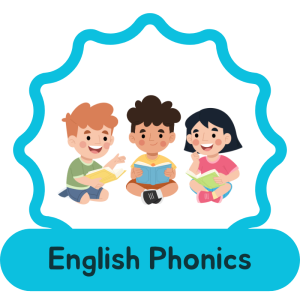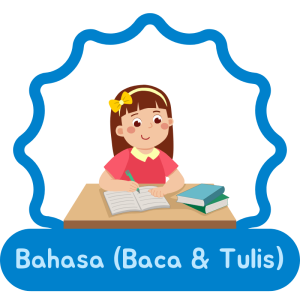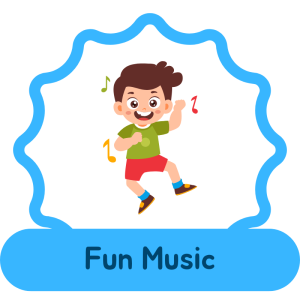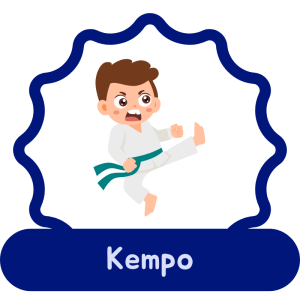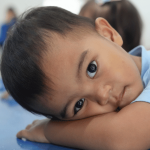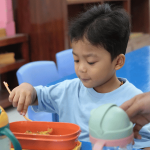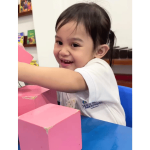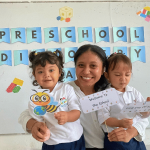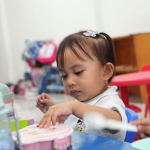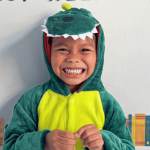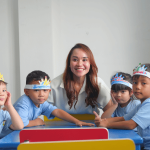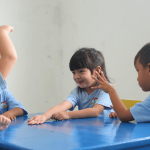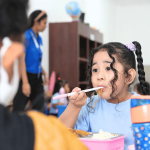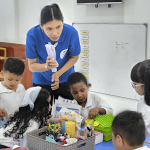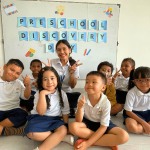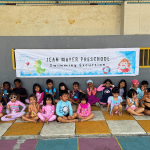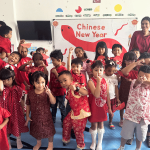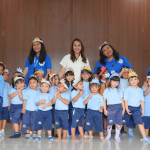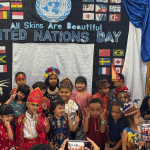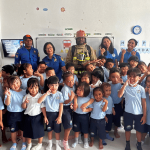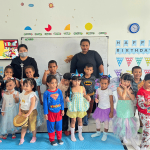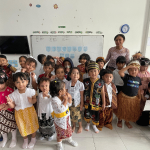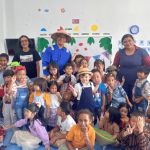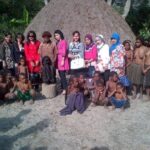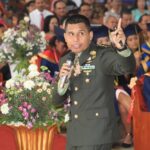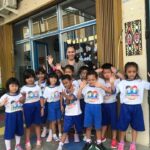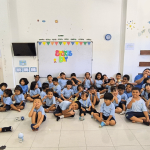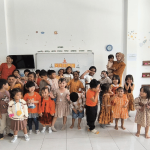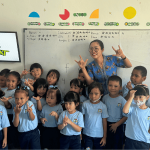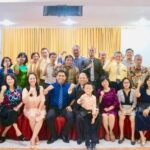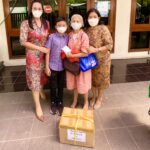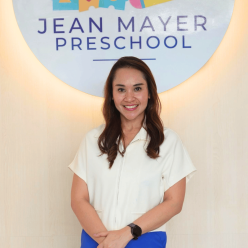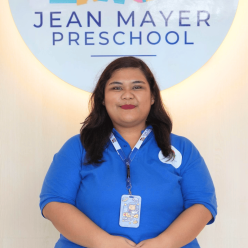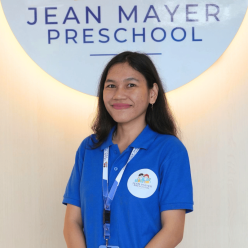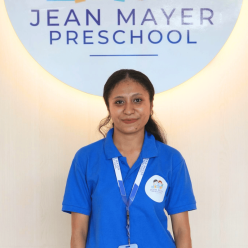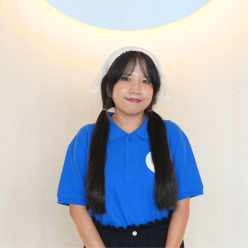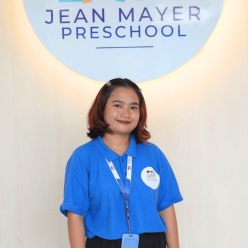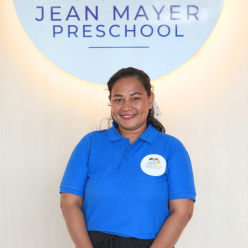🐝 Welcome to Jean Mayer Preschool
A place where young minds grow with confidence, curiosity, and joy!
At Jean Mayer Preschool, we believe every child is naturally curious, capable, and full of potential. Our nurturing, thoughtfully designed environment encourages children to explore, ask questions, and develop a lifelong love for learning — all while feeling safe, supported, and celebrated for who they are.
Rooted in the Montessori philosophy and aligned with the national curriculum, we create a balanced learning experience that supports each child’s intellectual, emotional, and social development.
Learning with Purpose and Heart
Here at Jean Mayer, learning is both intentional and joyful. Our classrooms are filled with hands-on activities that allow children to explore language, math, science, art, and practical life skills at their own pace. Teachers act as gentle guides, helping each child become more independent, thoughtful, and engaged in their world. We don't just prepare children for school — we prepare them for life.
A Whole-Child Approach
At Jean Mayer, we nurture not only what children know, but also who they are. We place strong emphasis on: Character development — teaching kindness, respect, and empathy Critical thinking — encouraging curiosity and problem-solving Confidence and independence — helping children take initiative and make decisions Meaningful learning experiences — through real-world projects, themed activities, and special educational events
Beyond the Classroom
We believe learning should be exciting! Our school calendar is filled with educational events that spark imagination and connect learning to real life — from cultural celebrations and science days to nature walks and community involvement. These moments create lasting memories and deepen understanding.
A Place to Begin, A Place to Belong
Whether your child is just starting to explore the world as a Little Bee, or preparing to soar as a Bee Explorer, Jean Mayer Preschool is here to guide and celebrate every stage of their journey. We are proud to be a joyful first step in a child's educational path — a place where they feel inspired, cared for, and truly excited to learn.
Happy Trails at Jean Mayer Preschool
Jean Mayer Preschool was founded in 2014 by Jenni Florida Tambunan, a graduate of Adventist University of the Philippines and a Master’s degree holder from Universitas Brawijaya. Although she does not come from an educational background, Jenni has always had a strong interest and deep concern for children’s education, especially in Papua.
Living alongside her husband, Polsan Situmorang—a military officer who served in various remote areas of Papua—opened their eyes to the importance of human development through education, starting from early childhood. Before starting the preschool, Jenni established Jean Mayer Music Course in Jayapura in 2013.
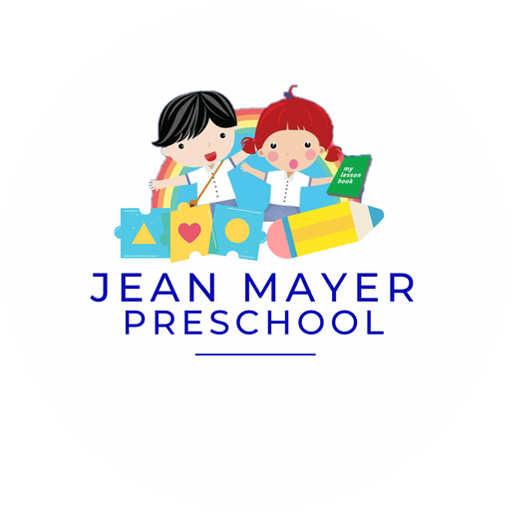
Jean Mayer Preschool Leading Light
Vision

To nurture confident, compassionate, and independent young learners by unlocking their fullest potential for the tomorrow world.
Jean Mayer Preschool
Mission
C Character Building
We nurture respectful, honest, and well-mannered children.
H Hands-on-Learning
We engage children through active, meaningful exploration.
I Independence
We support self-reliance and confident decision-making.
L Lifelong Values
We instill empathy, kindness, and responsibility.
D Developing Critical Thinking
We encourage curiosity, reflection, and problem-solving.
Classes
(2–3 years old)
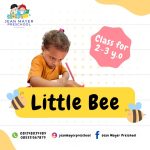 Welcome to our Little Bees — where the first steps into learning are full of wonder and discovery!
Welcome to our Little Bees — where the first steps into learning are full of wonder and discovery!
In this nurturing and playful environment, your little one begins their learning journey through hands-on Montessori activities designed for tiny hands and big imaginations. We focus on developing independence, early language, motor skills, and confidence in a calm, structured setting. Singing songs, sensory play, and practical life activities help each Little Bee grow at their own pace — all while having lots of fun!
I
(3–4 years old)
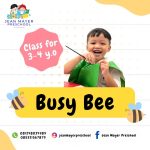
Our Busy Bees are curious, creative, and ready to explore the world around them!
At this stage, we blend Montessori-inspired learning with early elements of the national curriculum to support language development, early numeracy, and social skills. Children are encouraged to make choices, solve problems, and express themselves through art, music, movement, and play. It's a joyful space where independence grows and friendships blossom — always guided by gentle structure and care.
(4–5 years old)
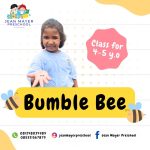
Bumble Bees are full of energy, ideas, and growing confidence!
In this exciting phase, children continue their Montessori journey with more focused activities in literacy, numeracy, and the world around them, aligned with early learning goals of the national curriculum. They learn through purposeful play, storytelling, practical life tasks, and exploration — always with an emphasis on kindness, concentration, and curiosity. This is where children really begin to find their voice and love for learning!
(5–6 years old)
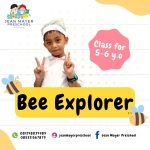
Our Bee Explorers are ready to soar!
In this final stage before primary school, children take on more advanced Montessori activities and a rich, well-rounded curriculum that prepares them for the next big step. From phonics and early writing to numeracy, science, geography, and cultural studies, our Bee Explorers are encouraged to ask questions, take initiative, and build resilience. We support each child's individual learning style while promoting teamwork, responsibility, and a real excitement for what comes next.
Yayasan Cakrawala Suluh Bangsa
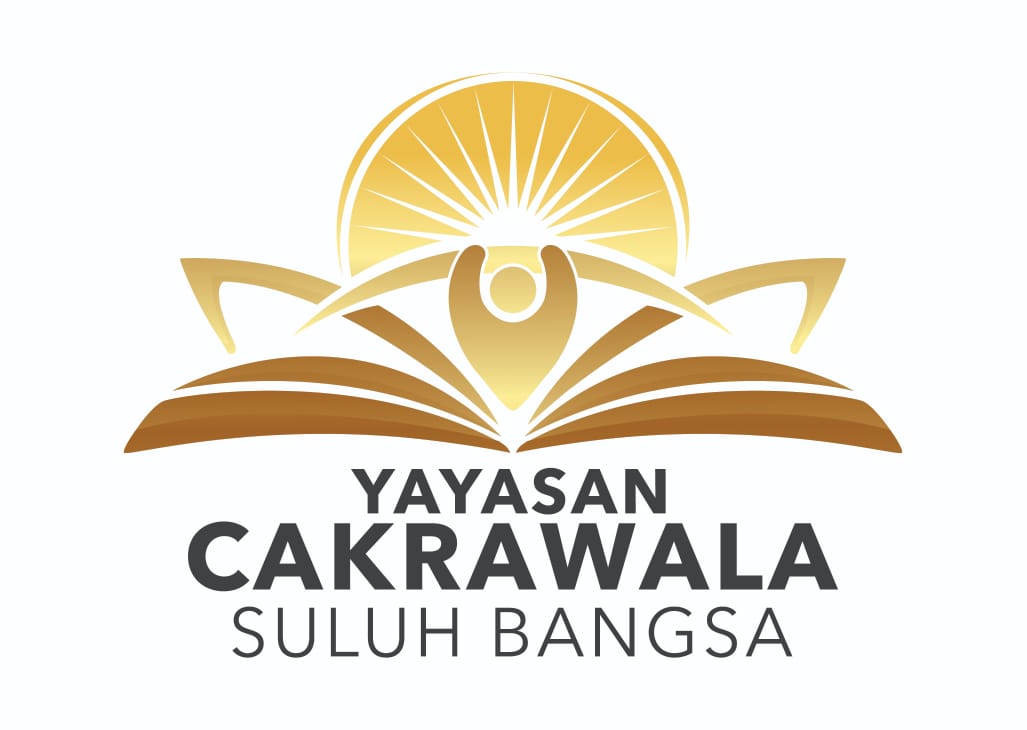
How We Advance Our Mission.
Although many organizations speak up for the adults employed by schools and colleges, we speak up for early childhood students, especially those whose needs and potential are often overlooked in Papua especially Papua Selatan. We carry out our mission in three primary ways:
Yayasan Cakrawala Suluh Bangsa is a nonprofit organization dedicated to advancing equity and opportunity in early childhood education. We focus on ensuring that all children—especially those from underserved and under-resourced communities—have access to quality learning experiences from the very start. Through research, advocacy, and community partnerships, we work to close opportunity gaps and support educational environments where every child can grow, learn, and succeed.
- We believe that education in the early years lays the foundation for a child's lifelong development and success.
- We believe that every child has potential, and schools have the power to help all students achieve it—regardless of their background.
- We believe that inequities in education are the result of long-standing systemic barriers, but with collective effort, these can be addressed and overcome.
- We believe that investing in early education is investing in a stronger, more equitable future for all.
Our Team
Ms Verren Hutapea
Ms Ester Purba
Ms Cynthia Sally
Ms Hani Widianty
Ms Inggrid Oktavianus
Ivana Bagre
Ms Irene Vhino
Want to get more information about our learning center or would like to see it inside, feel free to schedule a tour.
Come visit us today!

